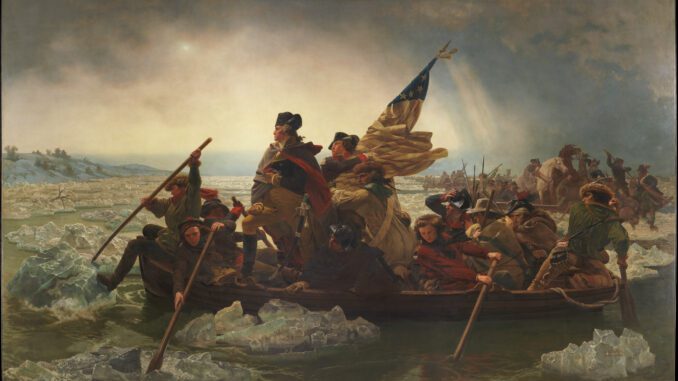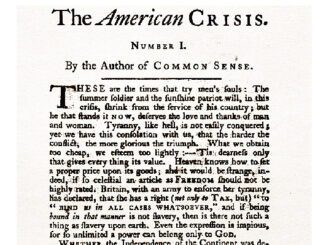
The citizens of America, placed in the most enviable condition, as the sole lords and proprietors of a vast tract of Continent are now acknowledged to be possessed of absolute freedom and Independency.
They are from this period to be considered as the actors, on a most conspicuous theatre, which seems to be peculiarly designated by Providence for the display of human greatness and felicity. Here they are not only surrounded with everything which can contribute to the completion of private and domestic enjoyment, but Heaven has crowned all its other blessings by giving a fairer opportunity for political happiness, than any other nation has ever been favored with.
Nothing can illustrate these observations more forcibly than a recollection of the happy conjuncture of times and circumstances under which our republic assumed its rank among the nations — the foundation of our empire was not laid in the gloomy Age of ignorance and superstition but at a period of history when the rights of mankind were better understood and more clearly defined, than at any former period.
The researches of the human mind after social happiness have been carried to a great extent; the treasures of knowledge acquired by the labors of philosophers, sages and legislators, through a long succession of years, are laid open for our use. Their collected wisdom may be happily applied in the establishment of our forms of Government. The free cultivation of letters; the unbounded extension of commerce; the progressive refinement of manners; the growing liberality of sentiment; and, above all, the pure and benign light of Revelation, have had a meliorating influence on Mankind and increased the blessings of society.
At this auspicious period, the United States came into existence as a nation, and if their citizens are not be completely free and happy, the fault will be entirely their own.
There are four things essential to the well-being and the existence of the United States as an independent power:
First — An indissoluble Union of the States under one federal head.
Secondly — A sacred regard to public justice.
Thirdly — The adoption of a proper peace establishment
Fourthly — The prevalence of that pacific and friendly disposition among the people of the United States, which will induce them to forget their local prejudices and policies; to make those mutual concessions which are requisite to the general prosperity; and, in some instances, to sacrifice their individual advantages to the interest of the community.
These are the pillars on which the glorious fabric of our independency and national character must be supported — liberty is the basis — and whoever would dare to sap the foundation or overturn the structure under whatever specious pretexts he may attempt it, will merit the bitterest condemnation and the severest punishments which can be inflicted by his injured country.
I now make it my earnest prayer that God would have you, and the state over which you preside, in his holy protection, that he would incline the hearts of the citizens to cultivate a spirit of subordination and obedience to government, to entertain a brotherly affection and love for one another, for their fellow citizens of the United States at large.
And particularly for their brethren who have served in the field, and finally, that he would most graciously be pleased to dispose us all, to do justice, to love mercy, and to demean ourselves with that charity, humility, and pacific temper and mind, which were the characteristics of the Divine Author of our blessed religion, and without a humble imitation of whose example in these things, we can never hope to be a happy nation.
Adapted and modernized from Gen. George Washington’s Circular to the States. June 8, 1783, upon his retirement from the Continental Army.


